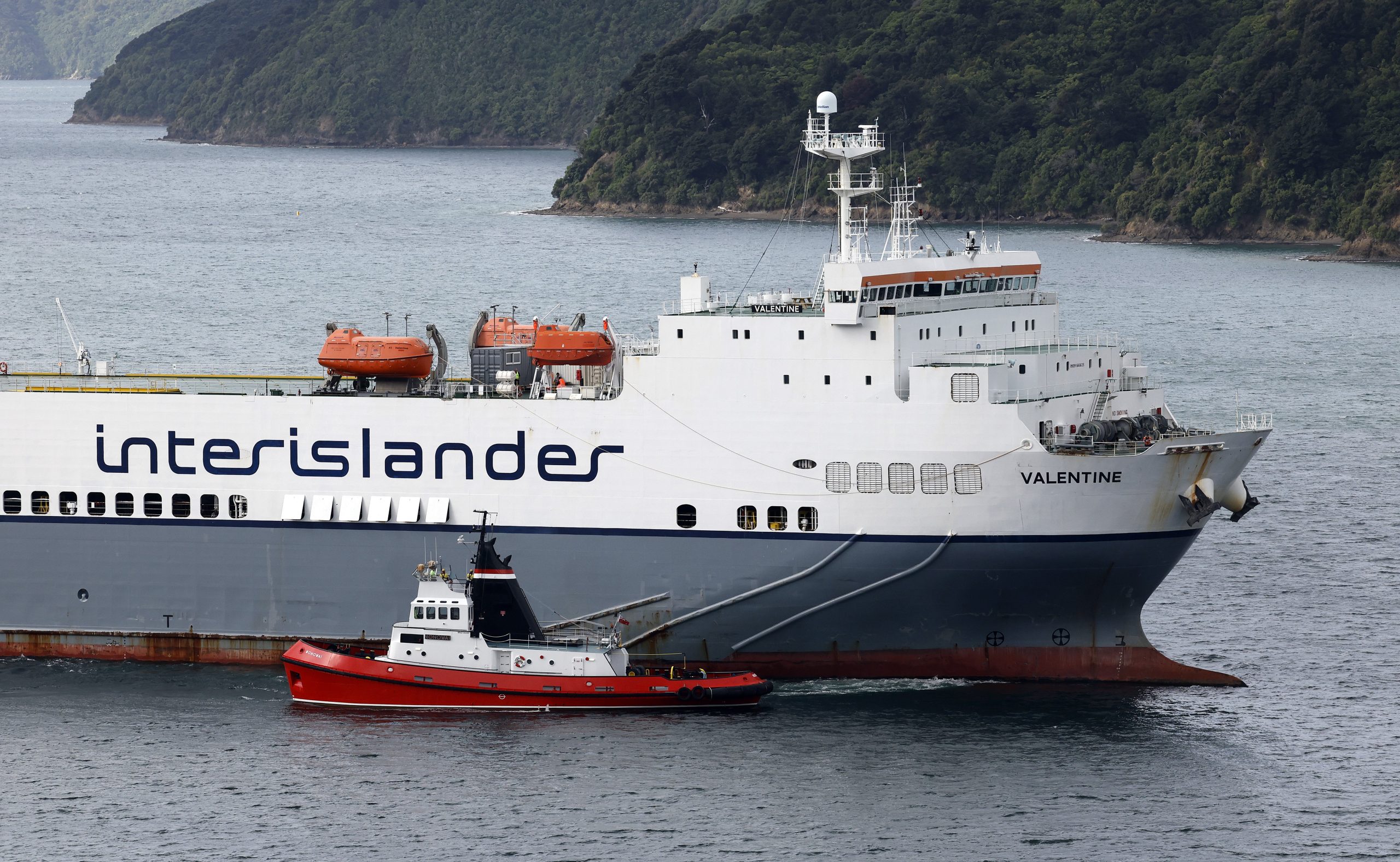Cross-strait connection plans scuppered


Questions are now being asked as to how New Zealand’s most vital ferry service will find funds for necessary investment over the next 10 years. Photo: File
The Cook Strait ferry upgrade deal with Hyundai Mipo Dockyard is officially scuttled, as KiwiRail announce they have begun negotiations to cancel the arrangement.
Questions are now being asked as to how New Zealand’s most vital ferry service will find funds for necessary investment over the next 10 years.
At Select Committee, KiwiRail bosses partially blamed poor project governance for the heavy increase in costs which caused the December $1.2b funding request denial from the Government.
Port Marlborough has commented, ensuring Marlburians that they have "not suffered any financial loss as a result of the word done to date", and "share the disappointment that the rest of the region is feeling in terms of the project not going ahead".

KiwiRail chief executive Peter Reidy told MP’s they are looking at a second round of purchasing second-hand ferries - following the path of the Kaitaki’s arrival from the Irish Intercontinental Group in 2005 and the Kaiarahi’s in 2013.
However, Reidy says there are only 22 second-hand ships that meet the criteria of being at most 10 years old, have modern safety backup systems and are hardy enough for Cook Strait sailings – with none of these options for sale.
After a meeting between KiwiRail bosses and the Government’s Transport and Infrastructure Select Committee on the 15 February it was stated infrastructure needed upgrading.
KiwiRail bosses said infrastructure on both sides of the Strait - including Wellington’s CentrePort and Bluebridge terminals - will require a variety of upgrades in the next decade.
That is now a “problem to be solved” for the Transport Ministry and all New Zealand, not KiwiRail, said Reidy.
“Port Marlborough wharf has probably got about two to three years left. It is at a very end-of-life state. You talk to CentrePort, there’s work we’ve got to do as well.”
Port Marlborough representatives contest this comment, saying that reduced maintenance programmes since KiwiRail assumed possession of the Interislander wharf in preparation for demolition and replacement have left it in it's current state.
"Our teams have worked with KiwiRail on the iReX project for many years now, and while the news to wind down the project was disappointing, we remain committed to collaborating with the government and KiwiRail as we navigate the way forward to ensure this inter-island connection for New Zealand.
"Subject to the correct maintenance programme being applied, the wharf and infrastructure will last until beyond 2029, which following the comments made today in the hearing, we understand will be some years beyond the life of the current Interislander fleet.
They also said they do not know what cancelling the ferry contracts and quitting 150 contracts for the terminal works in Wellington and Picton will cost the Crown-owned enterprise.

However, despite claims that the size and price of the Korean-built ferries had driven the blowout, terminal needs of the two larger ferries had pushed up costs only 7 per cent, Reidy said.
The two ferries were being tailor-made for the crossing at Hyundai Mipo Dockyard in Ulsan, South Korea. They were purchased for about $550m when ordered in 2019.
Reordering a pair of similar spec ships now would cost 30-40 percent more due to inflated prices, ship brokers advised.
Other costs included escalating construction costs and price rises pegged to the year-long search for a new site, which combined for a “perfect storm of factors” for an $1b blowout.
Throughout the Select Committee, the inclusion of private capital, cruise ship berthing access, the purchase of ferries without rail access and a coordinated upgrade effort across Interislander, CenterPort and Bluebridge were posed as routes forward.
KiwiRail chair David McLean told MP’s that he and Peter Reidy were horrified by revised iReX costings in 2022 showed a huge blowout from the initial “pie-in-the-sky” $800m expectations when they were both still in their first year of their roles.
“The question we have always struggled with is why was KiwiRail building terminals? We are not a wharf owner”.
After recalculations returned “a completely different set of numbers, to our horror, which really showed us it was going to be well over $2b", McLean said “it was a surprise to everyone… we didn't really have that analysis.
“And why didn't we? Because it hadn't been governed properly internally."

Finance Minister Nicola Willis said on Thursday that getting ferries that did not have roll-on roll-off tracks for rail freight, was absolutely a possibility.
However, McLean told MPs that KiwiRail required a single rail system which allowed freight to move easily across the Strait and subsidised passenger movements.
If ships could not take trains, it would add time to freight movements as containers were double handled, putting customers off, he said.
To date, the iReX project spent $424m on ship related costs, port design and minor wharfside works.
This was not all lost money, said Peter Reidy, because they had the designs for Kaiwharawhara ready to go.
With the full cross-strait plan now being reviewed by an advisory group, plans both on and off the water for future upgrades are all up in the air.
